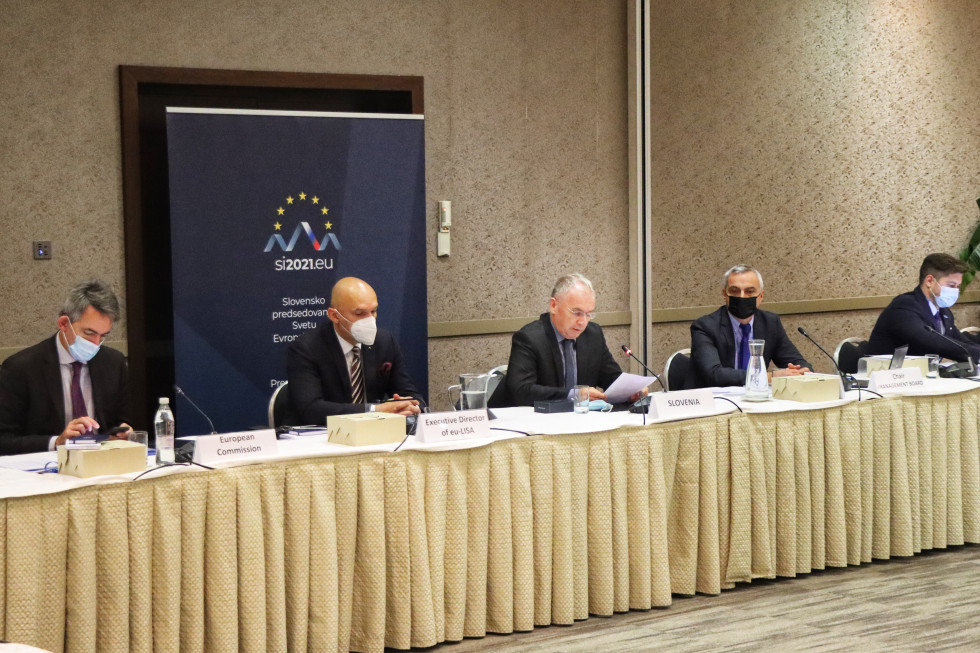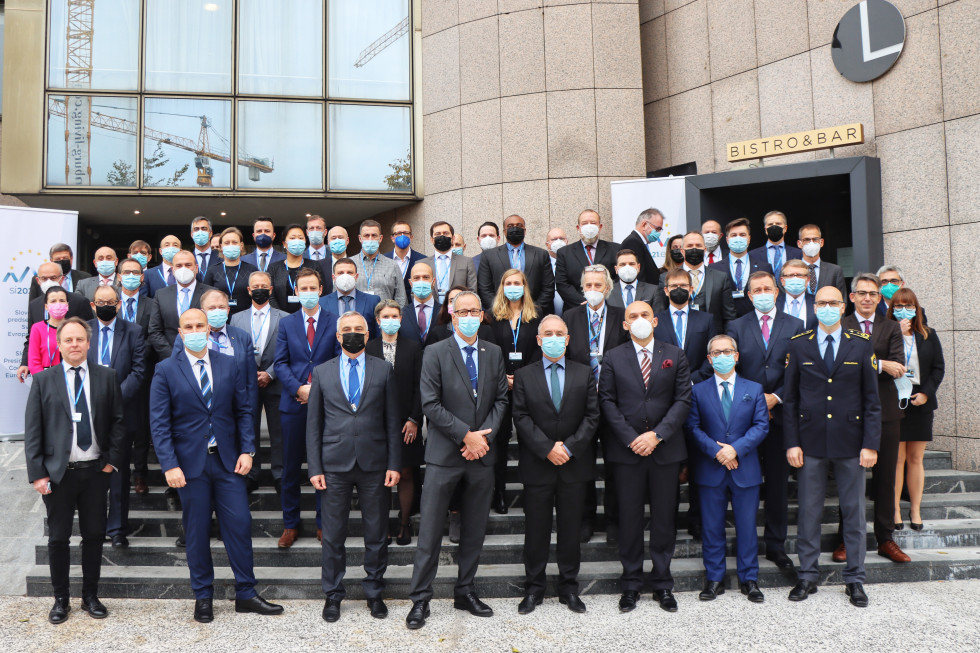By: UKOM
Under the Slovenian Presidency of the Council of the EU, the Management Board of the European Agency for the Operational Management of Large-Scale IT Systems in the Area of Freedom, Security and Justice (eu-LISA) is meeting in Ljubljana. The main focus of the meeting is on the timeline for the implementation of smart borders and interoperability projects, which will make an important contribution to ensuring the security of EU member states and enable law enforcement agencies to work even more effectively.
The meeting was also addressed by Aleš Hojs, the Slovenian Minister of the Interior and the current holder of the Presidency of the EU Home Affairs Council. He underlined the important role of eu-LISA in ensuring security: “Foremost by ensuring the operational functioning of existing systems, namely the Schengen Information System, the Visa Information System and Eurodac. However, the planned smart borders projects with the Entry/Exit System (EES) and the European Travel Information and Authorisation System (ETIAS), and in particular the interoperability project, will bring new challenges.”
The interoperability project, which Hojs said is particularly important in terms of ensuring security and responding to challenges such as migratory pressures and terrorist threats, represents a major challenge for eu-LISA, as it will integrate existing and new IT systems that are currently not yet integrated and introduce a common biometric system with facial images and fingerprints, thus enabling users to provide security more effectively. “This is an extremely complex project that requires good cooperation between all stakeholders: the European Commission, eu-LISA, Europol, Frontex, Interpol and the member states. It requires everyone to adapt existing IT solutions and implement new ones, and above all adapt all work processes. The aim is to have interoperability up and running by the end of 2023,” said Mr Hojs.
Today’s meeting will discuss some of the difficulties in meeting deadlines caused by the COVID-19 pandemic and delays in the supply of equipment, and the new timeline for the implementation of interoperability, which is expected to be formally adopted at the December Justice and Home Affairs Council. Today’s Management Board meeting will be followed by meetings of the three programme committees in charge of implementing the smart borders projects (EES and ETIAS) and interoperability.


